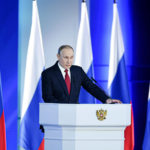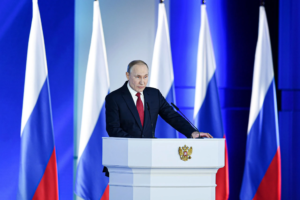Social media has been as a key battleground in the ongoing Israel-Gaza conflict as both sides are “trying to shape narratives and sway public opinion,” according to Marc Owen Jones, a leading expert on digital media and disinformation.
“The amount of disinformation is staggering, and is often made worse by the fact some outlets are more inclined to write stories that are not substantially fact-checked, especially in a chaotic info environment,” Jones, associate professor of Middle East studies at Hamad bin Khalifa University in Qatar, told Anadolu.
For the Israeli side, the main objective has been to share information on attacks by the Palestinian group Hamas and justify its own military actions, while Palestinians use it to highlight civilian suffering and deaths, he said.
“Both sides spread messages portraying the other as aggressors,” he added.
Jones also pointed out what he called “a peculiar aspect” of the ongoing information war, specifically the “synergies between Indian right-wing accounts and pro-Israel accounts, who are magnifying information.”
This, in his view, is a reflection of the “Islamophobic policies” and “anti-Muslim rhetoric” in India.
“A lot of fake news and widely shared tweets are from Indian journalists, and there are also a lot of Indian journalists now in Israel,” said Jones.
In the current crisis, Jones said Israel “seems unashamed in spreading disinformation, something they have done before but never on this scale.”
His assessment was backed by Bharat Nayak, an Indian journalist and fact-checker, who said there has been a clear surge in pro-Israel messaging from Indian accounts on all major platforms, including X, Facebook and WhatsApp.
Citing examples, he said the content of these messages covers claims such as Israel saving India during the 1999 Kargil war with Pakistan, similarities between Hinduism and Judaism, and that “no Muslims in India and opposition parties condemn the actions of Hamas.”
“The current link between the Indian right wing and Israel is that for the last one decade, Muslims have been a target of the Indian right wing, and here most of the Palestinians dying are Muslims,” said Nayak.
“Most of the narratives that are being circulated in India relate to how Muslims in India support Hamas, and they are capable of doing the same thing to Hindus that Hamas did to Israeli citizens.”
The disinformation being spread on WhatsApp groups “is being used to stoke fear of Muslims among Hindus,” particularly in India’s “Hindi-speaking belt,” he added.
“While the narratives viral on Twitter can be considered as ‘hate speech,’ the content viral on WhatsApp falls under ‘fear speech’ – messages aimed at instilling existential fear of a target, ethnic or religious, group,” he explained.
Love for Israel and being anti-Muslims has become synonymous
Azad Essa, a South African journalist and author, said the current Israel-Hamas conflict has come “at a time in which India-Israel ties are the most developed they have ever been.”
“Over the past decade, India has emerged as the biggest purchaser of Israeli weapons, accounting for almost 50% of all weapons Israel exports,” he said.
“India now co-produces Israeli weapons, and since 2017, the two countries have been in a strategic alliance, in which they have cooperated on tech, start-ups, water management, agriculture … in almost every field at this point.”
He said it took Prime Minister Narendra Modi just a few hours to condemn the Oct. 7 Hamas attacks, which paved the way for Indian mainstream media to “both cover this story closely, as well as report on it as a matter of national concern.”
Source : aa
















